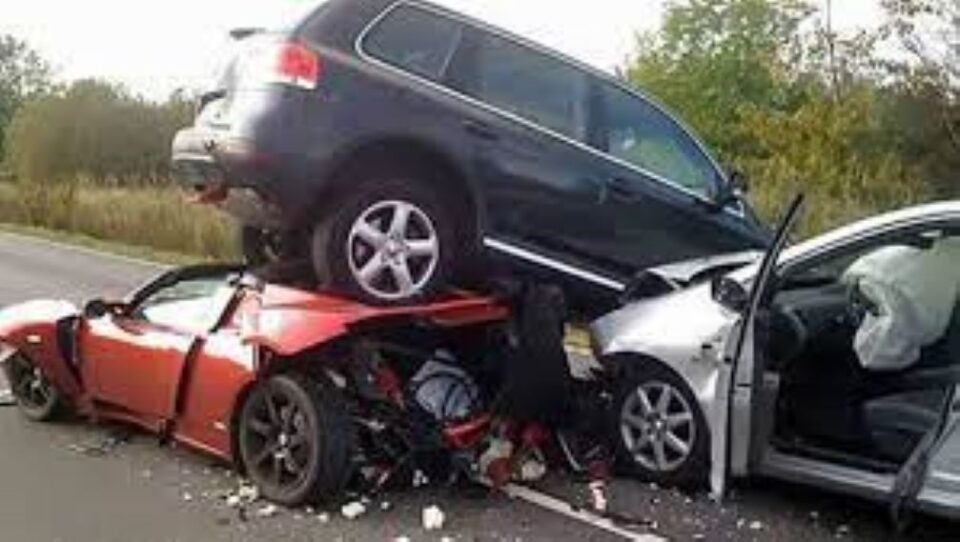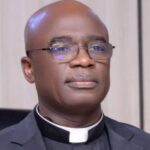By Hassan Zaggi
In an effort to reduce deaths and injuries including brain and spine injuries occasioned by road crashes in the country, the Federal Road Safety Corp (FRSC) has embarked on the training and retraining of Patrol Operatives and Paramedics in all critical corridors nationwide on world best practices in the handling of road traffic crash casualties.
The Corp Marshal of the FRSC, Mr. Dauda Bui, disclosed this at the Brain and Spine Conference in Abuja, recently.
Represented by the Chief Medical Response and Rescue Operation of the Corp, Dr Davidson Okuobeya, the Corp Marshall further revealed that the Commission has established of 60 Zebra Points under its Emergency Ambulance Services; 30 Road Traffic Crash Clinics/ Help Areas, 25 Medical Centres across the country and also put in place sustained enforcement aimed at apprehending recalcitrant traffic offenders.
Other measures, the Commission introduced in order to halt the traffic crashes, he further said include “sustained advocacy and public enlightenment in churches and mosques; medical outreaches targeted at identified vulnerable drivers in motor parks free of charge; staffing of Emergency Ambulance Service Scheme (EASS) also known as zebra with paramedics and nurses who run 8 hours shift duties and synergy and collaboration with the Federal Ministry of Health through National Emergency Medical Services and Ambulance System (NEMSAS) to pilot the first National Ambulance Services in Nigeria.
“We have also donated 12 ambulances to support the modest take-off of the scheme: and established of Call Centre with Toll-Free Number: 122 through which the Corps responds to all emergency situations-RTC, casualties, women in labour, bomb blast victims and so on.”
The Corp Marshall therefore, called for strong synergy among all related agencies, critical stakeholders and the Non Governmental Organisations (NGOs).
“Combating the scourge of brain and spinal cord injury demands multi sect oral approach. The FRSC welcomes synergy and collaborations with the Brain & Spine Foundation Africa in reawakening the consciousness of Nigerians on the disastrous implications of brain and spine injuries,” he stressed.
Speaking earlier, the Founder and Executive Director of Brain and Spine Foundation Africa, Chika Okwuolisa, appealed to the governments at all levels to, as a matter of urgency, fashion out ways to addressing the plight of victims brain and Spine injury victims across the country.
“Brain and Spinal cord injuries are not merely statistics; they are profound disruptions to lives, families, and communities.
“Behind each accident, Is a narrative of pain. Resilience, and the indomitable human spirit”
“The survivors through their unwavering courage and persistent demand, have become the driving force behind our commitment. Their voices, echoing with pain, and resilience, have resounded in our hearts, compelling us to action.”
Mrs Okwuolisa further insisted that: “We gather not just as advocates but as voices united in prayer and hope that government, organisations and philanthropists rise to the occasion, of finding innovative ways to alleviate the pains, burdens borne by these victims.
“As it stands, the antidote is prevention. We have convened to explore strategies to minimise road crashes, the leading cause of traumatic brain and spinal cord injuries, disabilities, and deaths.
“We also aim to enhance the effectiveness of the countries emergency Rescue System, recognising the profound truth that in the realm of brain injuries, every passing minute can escape a life.”
She, therefore, appealed to philanthropists and well spirited individuals and groups to support in raising funds for awareness creation, education and training of experts in brain and spine related areas.
On his part, the Consultant Neuro Surgeon with the Federal Medical Center, Jabi, Abuja, Dr Douglas. Emeka Okor, revealed that some primary preventions of road crashes to include motorable roads, well trained drivers, efficient and Effective delivery of statutory function of FRSC which is preventing road crashes.
He noted that secondary preventions include prompt attention to victims of road accidents, provision of mobile clinics on the highways to manage RTA victims at the scene, among others.



